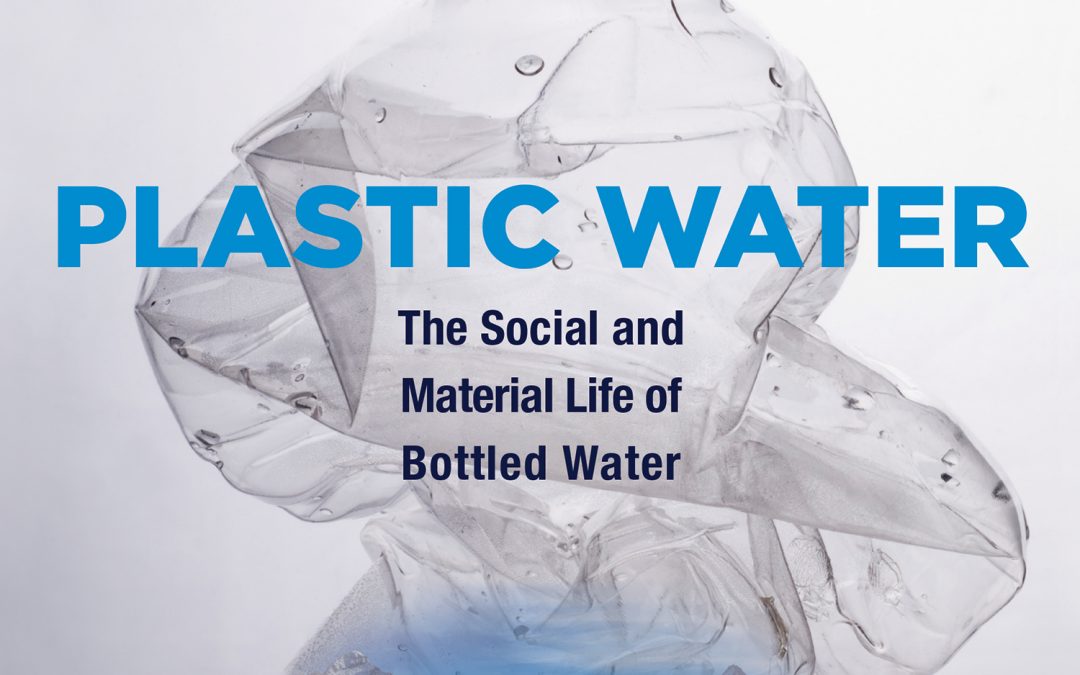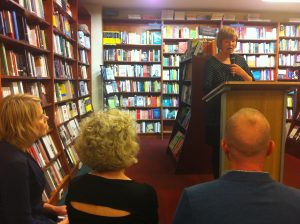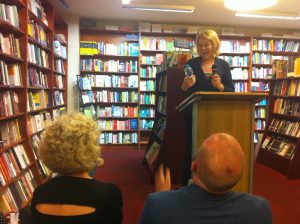[Setting: Readings Bookshop, Carlton]
[Event: Launch of ‘Plastic Water, the social and material life of bottled water’ by Gay Hawkins, Emily Potter and Kane Race, MIT Press, 2015]
Emily Potter:
Annie is the perfect person to launch this book. She is someone who has been intimately involved in the multiple lives of water for many years, as a scholar and artist, through stakeholder engagement and community consultation. She has worked with water as a material force, as technical object, and as cultural matter.
Annie Bolitho:
It’s an honour to be here to launch ‘Plastic Water, the social and material life of bottled water’ on behalf of its authors Gay Hawkins, Emily Potter and Kane Race. I do have a longstanding interest in the subject. One context from my working life I’d like to mention is my association with the University of Melbourne’s fabulous interdisciplinary Master of Environment. In one of their core units, many students engage with water as an urban ‘flow’. Their projects are situated in a rapidly changing environment, and must be long ranging. Future leaders like these will really benefit from the insights in this book.
Right now I’d like us to get together around the book! Isn’t it a beautiful production? It’s the product of seven years’ work. It’s a huge collaborative achievement.
The book started life as an Australian Research Council project. None of the authors imagined they’d be working on it for so long. Yet their stick-with-it-ness’ rewards us with a complex, often mesmerising study, which follows the object of the plastic bottle into multiple unanticipated scenarios.
Gay has consolidated her empirical and theoretical work on everyday practices of sustainability. Emily and Kane note with appreciation Gay’s insistence on the empirical. They’ll take this into future work. All the authors identify with different disciplines, as well as Cultural Studies. Nonetheless I’d like to take the occasion of this launch as celebrate the contribution of cultural studies as a discipline. It’s how I connect with the authors. It’s where I find some of my favourite theory, for example by Isabelle Stengers.
But most importantly Cultural Studies as a discipline doesn’t organise itself slavishly around method. This causes alarm to many! However we see in this book, an unusually close examination of a cultural institution, say the accelerating habit of what the authors term ‘frequent sipping’ and all that makes it so. Say the corporation Evian or Coca Cola Amatil, generally speaking seen as a brand. Perhaps a brand with ethical overtones. The authors bring these corporations to light as a plethora of social and material embodiments: their PET bottles, their labels, research programs to provide authoritative content for website marketing, corporate executives and operational staff, in-house purification plants, investment in ‘disadvantage’, as well as our society’s ‘attachment to a cluster of promises’ (Isabelle Stengers quoted in the book).
The UK commentator and sociologist John Brewer highlights the way today a narrow impact research agenda pushes people’s attention away from the very issues and complexity we need to be dealing with in our society. That is not the case here. We are invited into engagement with complexity and wonder, in a diffuse global transnational context.
A frequent criticism of Cultural Studies is that it fails to connect beyond the academy. One reading of the chapter on the Northern Territory Intervention knocks that on the head. The material on hydration reminds us of the relatively short period in which we have come to see ourselves as ‘me, me, me’ biological subjects. Think about it. We urban humans did not run before the 1970 New York Marathon, prior to its unprecedented media coverage. We run because of Gatorade. Read the book to find out more. The material on South and South East Asia brings forward what Simon During terms ‘a vernacular globalisation’. A great achievement.
Let’s raise our glasses to the authors, and launch this book. Cheers!
Hear more about this project in an interview with Emily Potter on ABC Radio.



